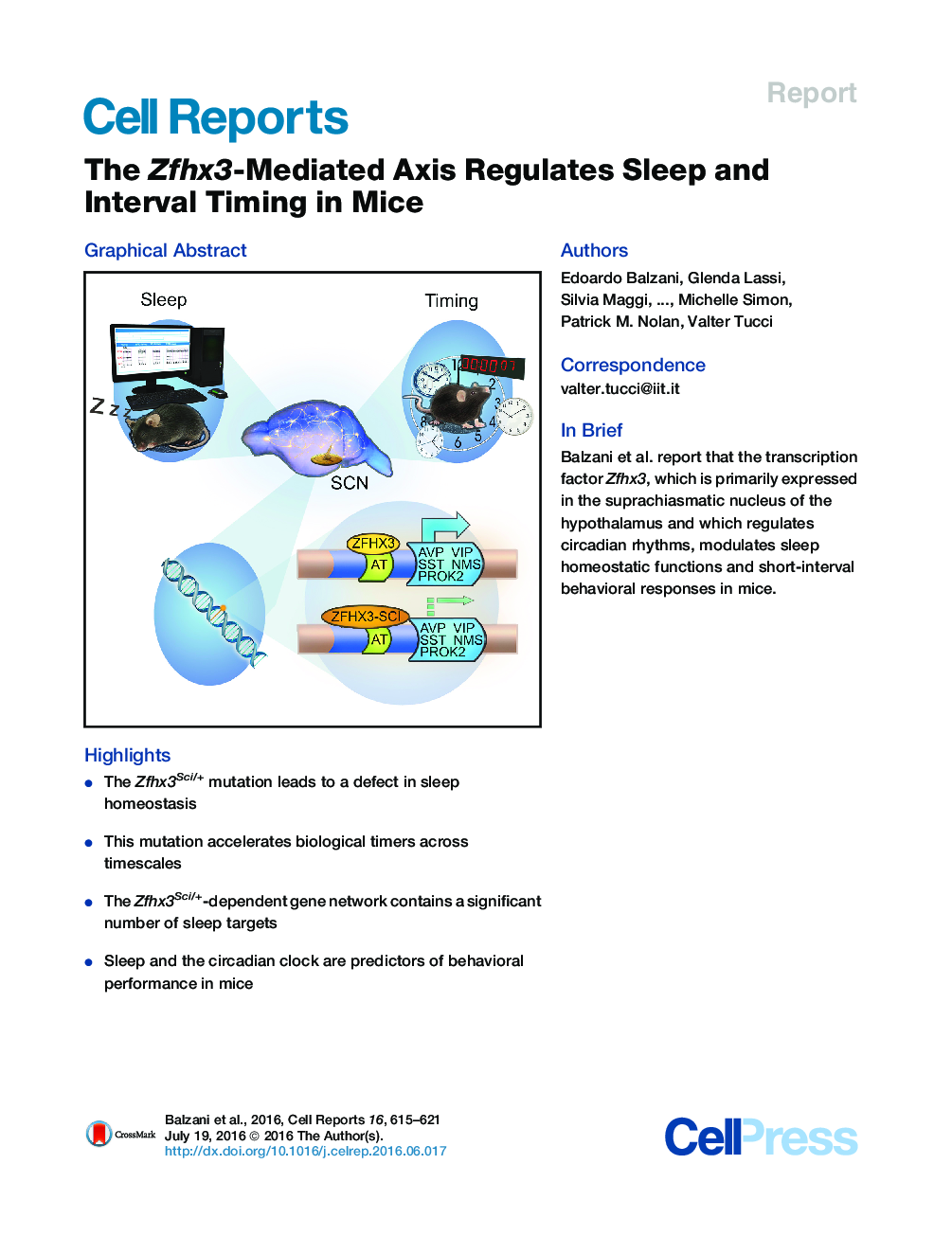| Article ID | Journal | Published Year | Pages | File Type |
|---|---|---|---|---|
| 2040101 | Cell Reports | 2016 | 7 Pages |
•The Zfhx3Sci/+ mutation leads to a defect in sleep homeostasis•This mutation accelerates biological timers across timescales•The Zfhx3Sci/+-dependent gene network contains a significant number of sleep targets•Sleep and the circadian clock are predictors of behavioral performance in mice
SummaryAn AT motif-dependent axis, modulated by the transcription factor Zfhx3, influences the circadian clock in mice. In particular, gain of function of Zfhx3 significantly shortens circadian rhythms and alters the transcriptional activity of an important class of neuropeptides that controls intercellular signaling in the suprachiasmatic nucleus (SCN) of the hypothalamus. The ZFHX3/AT axis revealed an important, largely cell-nonautonomous control of the circadian clock. Here, by studying the recently identified circadian mouse mutant Zfhx3Sci/+, we identify significant effects on sleep homeostasis, a phenomenon that is outside the canonical circadian clock system and that is modulated by the activity of those neuropeptides at a circuit level. We show that the Zfhx3Sci/+ mutation accelerates the circadian clock at both the hourly scale (i.e., advancing circadian rhythms) and the seconds-to-minutes scale (i.e., anticipating behavioral responses) in mice. The in vivo results are accompanied by a significant presence of sleep targets among protein-protein interactions of the Zfhx3Sci/+-dependent network.
Graphical AbstractFigure optionsDownload full-size imageDownload as PowerPoint slide
